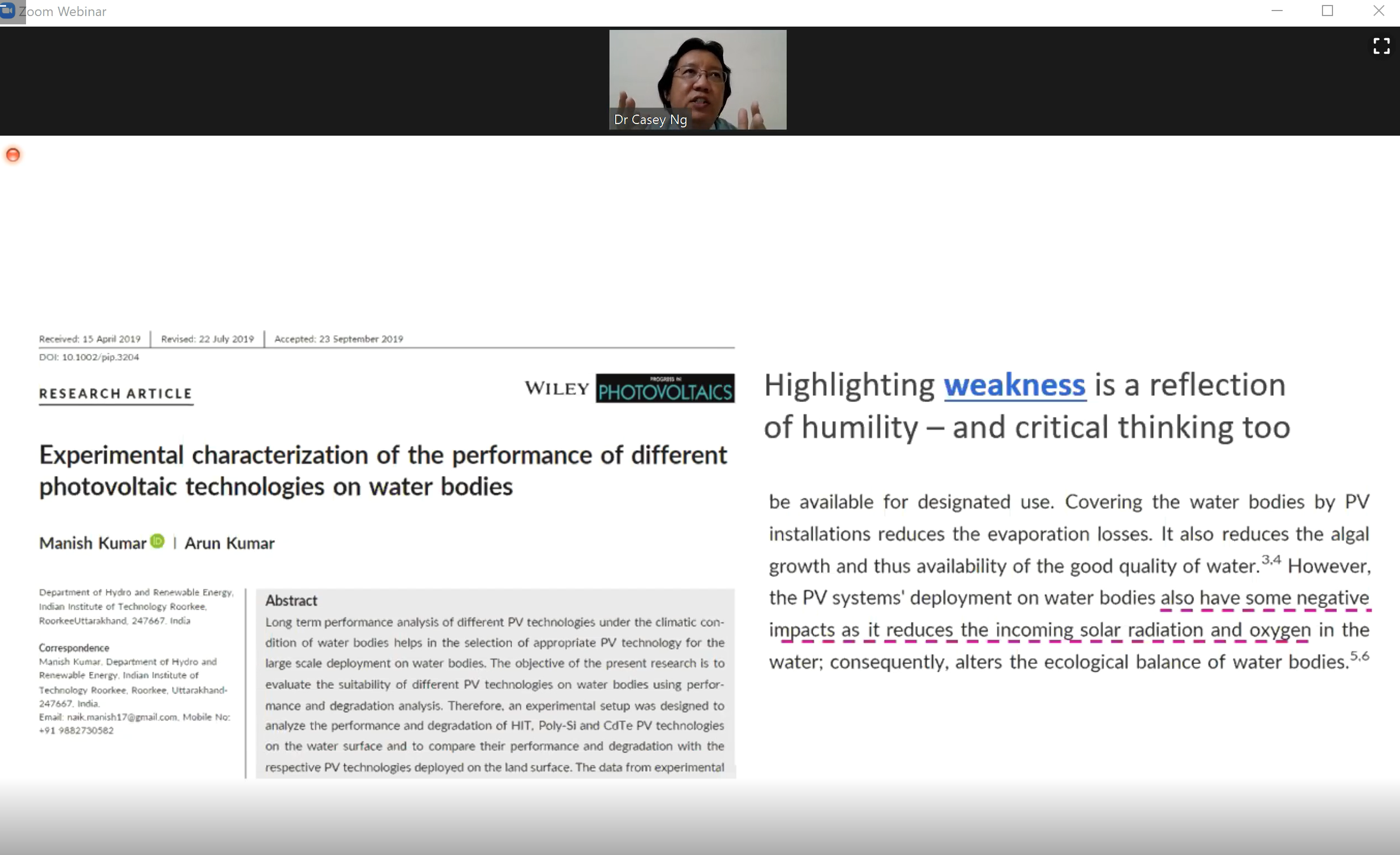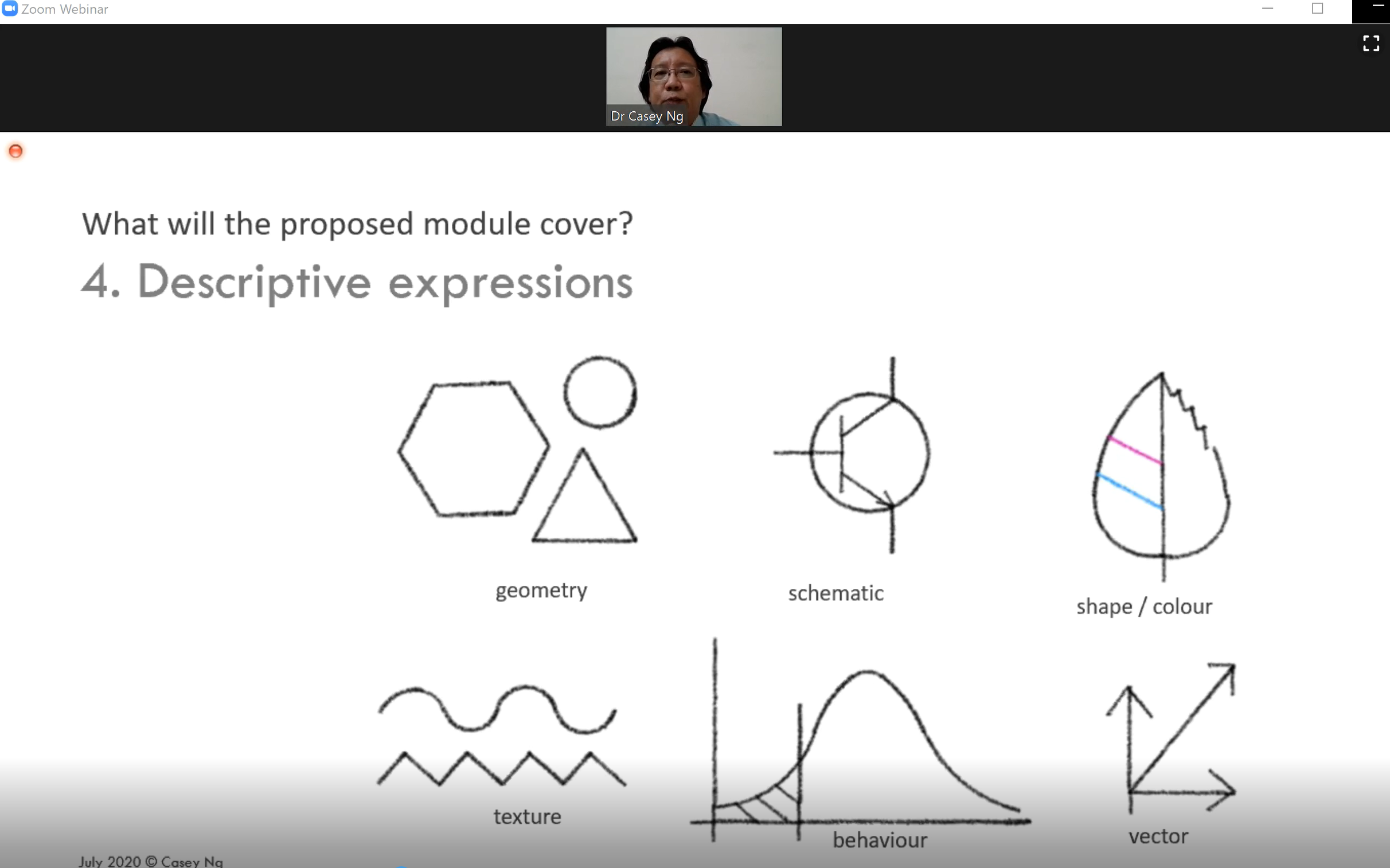

Dr Casey Ng during the Q&A session
With the aim to explore programme on how to improve
English for scientific writing systematically with the Institute of
Postgraduate Studies and Research (IPSR), the Centre for Corporate and
Community Development (CCCD) organised a webinar titled “English for
scientific publication - How can we progress systematically?” on 9 September
2020. It was held via Zoom to provide an overview of a proposal for
improving scientific English systematically among the postgraduates in
UTAR.
Speaking at the webinar was Centre for Biodiversity
Research (CBR) research fellow Dr Casey Ng, whereby he proposed a
task-oriented module to trigger scientific English awareness in UTAR and
described the proposed module content while acquiring feedbacks from the
participants.
In the webinar, he spoke about the types of English
genres, tips in writing, English for Asians, task-oriented learning, types
of paper to submit, critical thinking and advice on starting a research. Dr
Casey Ng said, “No matter how good a researcher you are, eventually you have
to write well to get your paper published. If you don’t publish, you’re
still a good researcher, but there would be a gap in you. You are not
considered good until you can express yourself in writing, conferences,
presentation and so forth. That is part and parcel of being a postgraduate.”
He added, “Research can be terribly difficult as you
have many ideas in your mind and it is not easy to arrange your thoughts.
There are many languages in our mind, but to digest something we may need a
lot of effort. In scientific English, a simple sentence is not enough, we
need more details to describe a certain phenomenon scientifically with
clarity. For instance, I may need to digest something in Cantonese while
thinking in English and write in scientific English. However, there is a way
of writing, once you get the hang of it, you will realise it is not as
difficult as it may seem. Science is not complete until you can communicate
it with people who do not know your work.”
He used the food analogy to explain the modules which
cover eight elements that aimed to teach postgraduate in understanding the
author’s guideline, impact factor, readability, descriptive expressions,
clarity and precision, fair argument, intellectual ethics and polishing.
“This module will focus on scientific English writing but not on research
efficiency or effectiveness. It provides a foundation for English
proficiency. Students would still need to continue to practice scientific
English after completing the module,” said Dr Casey Ng.
“In your paper, readability is important. Thus, you
need to produce a sentence that people understand on first reading. In
Each discipline has its own description in describing certain things.
Scientific English writing has to do with precision and clarity to provide
consistency. You need to show you are able to understand the implication if
certain factors changed because that will show whether you have mastered the
particular subject. Papers without exposé or do not further add to
intellectual debate has little publication value,” he said as he explained
the module.


Wholly owned by UTAR Education Foundation Co. No. 578227-M LEGAL STATEMENT TERM OF USAGE PRIVACY NOTICE